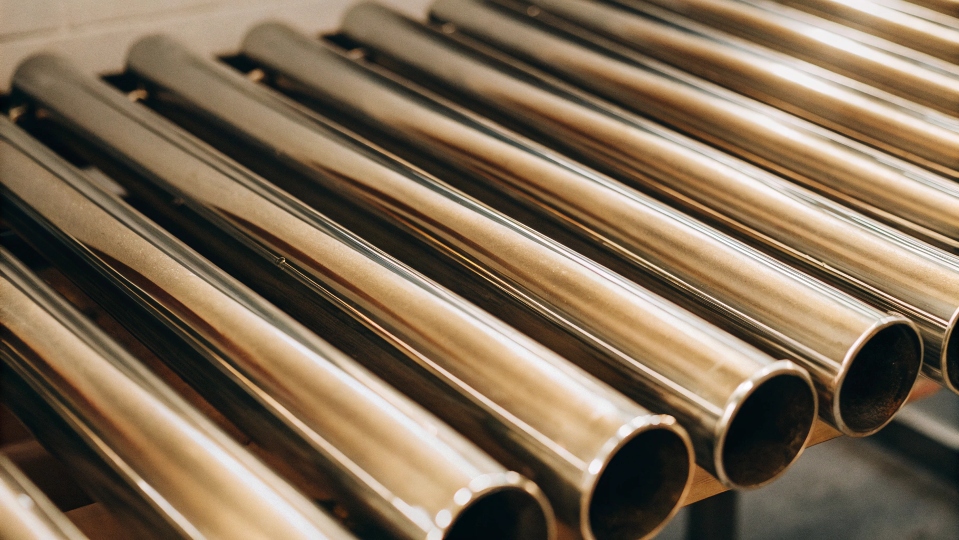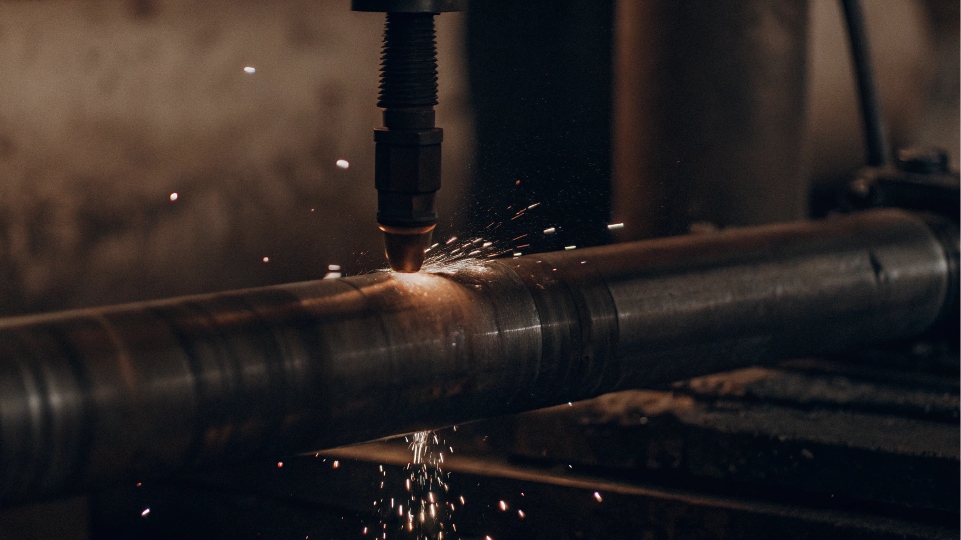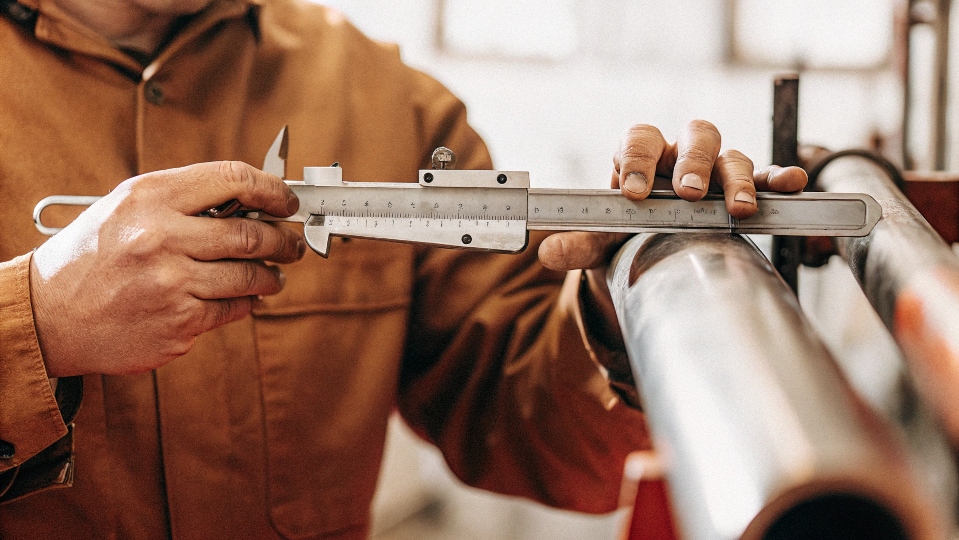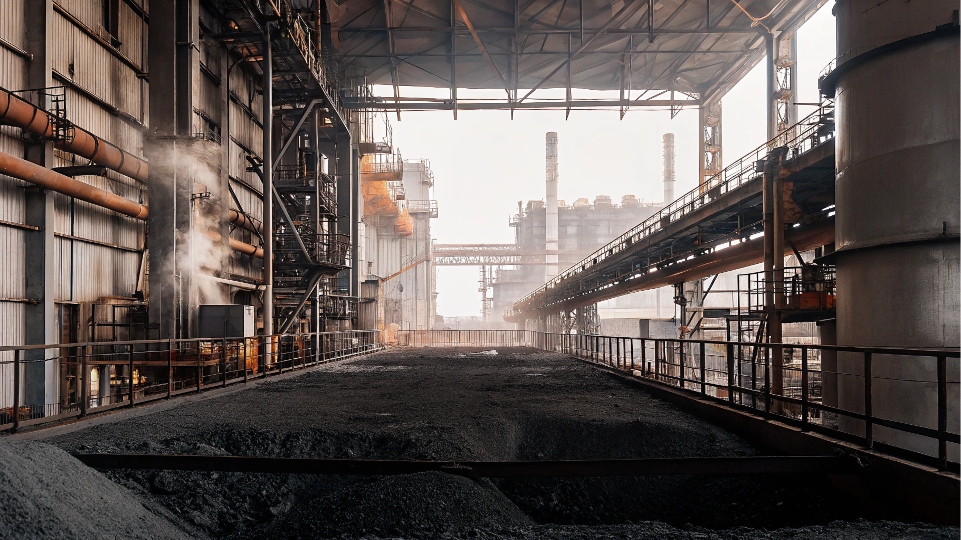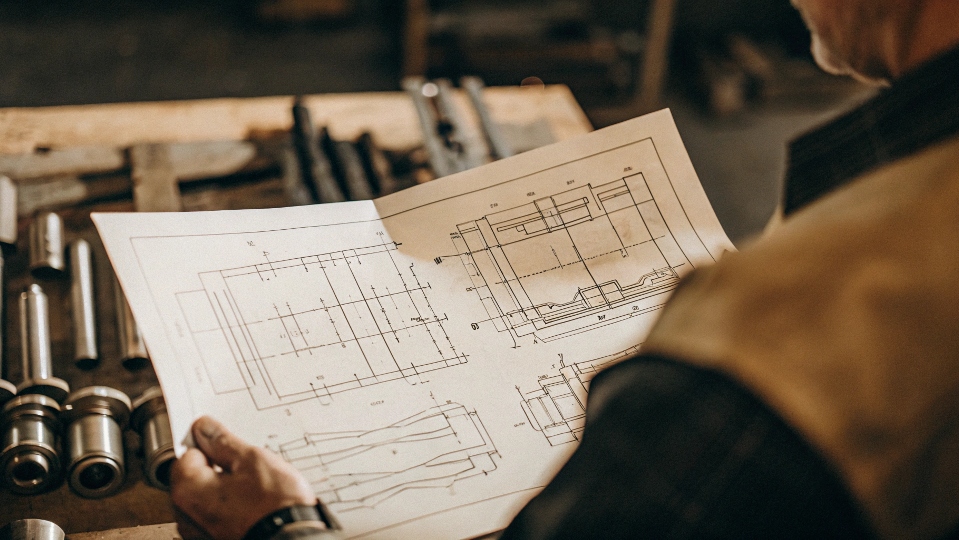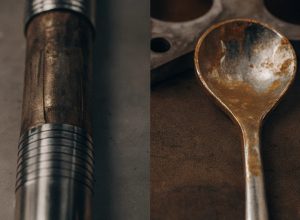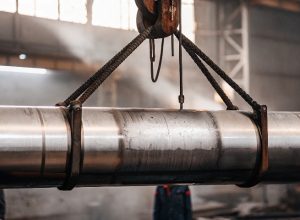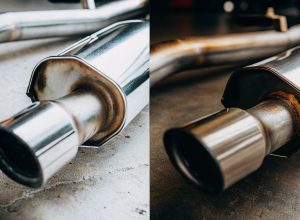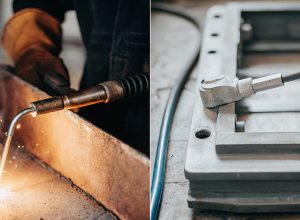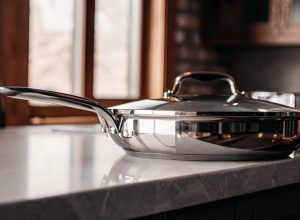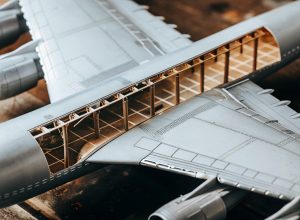Tired of constant equipment failure in corrosive settings? This leads to expensive downtime and repairs. Titanium heat exchanger tubes offer a reliable, long-lasting solution that saves money and headaches.
The answer is their unmatched resistance to corrosion. Titanium tubes withstand harsh chemicals, saltwater, and extreme temperatures far better than traditional metals, ensuring a longer service life and significantly lower maintenance costs for your heat exchangers.
Choosing the right material for industrial equipment is a critical decision. You need something that not only performs well but also lasts long, especially in environments that eat away at lesser materials. I’ve spent over a decade working with titanium, and I’ve seen firsthand how it can solve problems that plague engineers and sourcing specialists. It’s not just about avoiding rust; it’s about ensuring operational stability and long-term value. Let’s dive into why titanium is often the only sensible choice.
What Makes Titanium Tubes So Superior in Tough Conditions?
Engineers constantly battle material degradation in their equipment. Choosing the wrong material means facing frequent, costly replacements and operational headaches. Understanding titanium’s specific advantages brings reliability and peace of mind.
The superiority of titanium comes from three key properties: exceptional corrosion resistance1, a high strength-to-weight ratio2 that improves efficiency, and an incredibly long service life that drastically reduces the need for maintenance.
In my role as a technical manager, I often speak with sourcing specialists like Emily. Her challenge is to find materials that meet strict quality standards without fail. The choice of material for a heat exchanger isn’t just a technical detail; it’s a core component of the system’s reliability. From my experience, a key insight is that the initial investment in titanium pays for itself many times over through reduced downtime and maintenance. A major chemical processing client once told me that switching to our titanium tubes saved them from a quarterly maintenance shutdown, which was a massive boost to their production output. This is the kind of long-term value we aim to provide.
Let’s break down these advantages further.
Unmatched Corrosion Resistance
Titanium naturally forms a thin, stable, and highly adherent oxide layer on its surface when exposed to air or moisture. This passive film is the secret to its incredible corrosion resistance. It can heal itself instantly if scratched or damaged, making it a fortress against aggressive media.
- Seawater: It is virtually immune to corrosion in seawater, even at high flow rates. This makes it the top choice for desalination plants and offshore oil and gas platforms.
- Acids and Alkalis: Grades like Grade 7 (Ti-Pd alloy) show outstanding resistance to a wide range of acids, including nitric acid and wet chlorine gas, where stainless steel would fail quickly.
High Strength and Lightweight Nature
Titanium is as strong as steel but about 45% lighter. This high strength-to-weight ratio is a significant advantage in heat exchangers.
| Property | Titanium (Grade 2) | Stainless Steel (316L) | Copper-Nickel (90/10) |
|---|---|---|---|
| Density | 4.51 g/cm³ | 8.0 g/cm³ | 8.94 g/cm³ |
| Tensile Strength | ~345 MPa | ~515 MPa | ~310 MPa |
| Corrosion Rating | Excellent | Good | Fair to Good |
| Lifespan | 20+ years | 5-10 years | 3-7 years |
The lower density allows for thinner tube walls without sacrificing strength. Thinner walls mean better thermal conductivity and higher heat transfer efficiency. This means your heat exchanger can be smaller, lighter, and more effective.
Long Service Life and Low Maintenance
Because titanium tubes don’t corrode or erode easily, they last much longer than tubes made from other materials. This long service life means fewer replacements, less downtime for maintenance, and lower overall operational costs. For a company focused on tight deadlines and quality assurance, this reliability is priceless.
How Do You Ensure You’re Getting the Right Titanium Tube?
Ordering industrial materials like titanium tubes can be complex. A small mistake in the specifications, like choosing the wrong grade or tolerance, can derail an entire project and cause costly delays.
To get the right tube, you must clearly specify the correct titanium grade (like Grade 2 or Grade 5), the required dimensions and tolerances, and confirm it meets international standards like ASTM B338 for guaranteed performance.
Navigating the world of material standards can be tough. I work closely with people like Emily to make sure every order meets the exact requirements for their projects, especially when FDA and CE compliance is on the line. An important insight here is that a reliable supplier doesn’t just sell you a product; they act as a partner. At Titonest, we understand that full traceability and detailed Mill Test Reports (MTRs)3 are non-negotiable for medical and other critical applications. This level of diligence, as stated by industry experts at the International Titanium Association (ITA), is what separates a mere supplier from a trusted partner in the supply chain.
Let’s look at the key standards and specifications.
Common Titanium Grades
The grade of titanium you choose depends entirely on the application.
- Grade 2 (Commercially Pure): This is the workhorse of industrial applications. It has excellent corrosion resistance, good formability, and moderate strength. It’s perfect for most heat exchangers in chemical processing and seawater applications.
- Grade 5 (Ti-6Al-4V): This is an alloy known for its extremely high strength. It’s used when mechanical performance under high pressure and temperature is just as important as corrosion resistance.
- Grade 7 (Ti-Pd Alloy): This grade contains a small amount of palladium, which significantly enhances its resistance to crevice corrosion in reducing acids and saline environments.
| Grade | Key Feature | Common Application |
|---|---|---|
| Grade 2 | Best all-around corrosion resistance and formability | Seawater desalination, chemical processing |
| Grade 5 | Highest strength | High-pressure vessels, aerospace components |
| Grade 7 | Superior resistance in acidic environments | Specialized chemical reactors |
| Grade 12 | Enhanced crevice corrosion resistance at high temps | Shell and tube heat exchangers |
ASTM and ASME Standards
These standards are the backbone of material procurement. They ensure that the product you receive has the chemical composition, mechanical properties, and dimensional tolerances you expect.
- ASTM B338: This is the primary standard for seamless and welded titanium and titanium alloy tubes for condensers and heat exchangers. It covers everything from dimensions to testing procedures.
- ASME SB-338: This is the corresponding standard used for equipment built to the ASME Boiler and Pressure Vessel Code.
Following these standards ensures quality and safety.
Where Are Titanium Tubes Making the Biggest Impact?
It can be hard to appreciate a material’s true value without real-world examples. Theoretical benefits are one thing, but seeing where titanium tubes are absolutely essential really drives the point home.
Titanium tubes are the go-to solution in industries that simply cannot afford material failure due to corrosion. This includes large-scale seawater desalination4, aggressive chemical processing, high-purity pharmaceutical manufacturing5, and efficient power generation.
I’ve had the privilege of visiting many client facilities over the years, from massive power plants to pristine food processing factories. What always stands out is how a single, well-chosen component can be the linchpin of an entire operation. A key insight from my experience is that industries are increasingly adopting a "total cost of ownership" model. They recognize that while titanium might have a higher upfront cost, its longevity and reliability make it the most economical choice over the equipment’s lifespan. This shift in mindset, championed by leading industrial engineers, favors materials that promise stability and performance.
Here are some key industries where titanium tubes are indispensable:
Seawater Desalination
Desalination plants process enormous volumes of saltwater, a highly corrosive medium that destroys most metals. Titanium tubes, especially Grade 2, are immune to chloride pitting and crevice corrosion, making them the industry standard. They ensure the plant can run continuously for years without major overhauls.
Chemical Processing
In chemical plants, heat exchangers are exposed to a cocktail of aggressive acids, alkalis, and organic compounds. For these environments, specialized grades like Grade 7 or Grade 12 titanium are often the only materials that can withstand the conditions without leaching or degrading, ensuring product purity and process safety.
Power Plant Condensers
Efficiency is everything in a power plant. Condensers use tubes to cool steam back into water, and the efficiency of this heat transfer is critical. Titanium’s combination of corrosion resistance (especially with brackish or polluted cooling water) and the ability to use thin-walled tubes for better heat transfer makes it a superior choice over stainless steel or copper alloys.
Pharmaceutical and Food-Grade Equipment
In these industries, purity is paramount. Titanium is biocompatible and non-reactive, meaning it will not contaminate the product. It can also withstand the harsh cleaning chemicals and high temperatures used in sterilization processes, making it ideal for high-purity water systems and processing equipment.
How Do I Choose the Perfect Titanium Tube for My Project?
Selecting the exact right titanium tube from all the available options can feel overwhelming. Making the wrong choice can lead to poor performance, reduced efficiency, or even premature failure of your equipment.
The key is to follow a simple process. First, choose the material grade based on your operating temperature, pressure, and the specific corrosive medium. Then, decide between a welded or seamless tube based on your application’s pressure demands and budget.
This selection process is where a strong supplier partnership truly shines. I often get on calls with a client’s engineering team to review their needs. We discuss the application in detail, and sometimes I can suggest a more cost-effective grade or a slight design tweak that improves manufacturability. My insight here is that collaboration is key. When sourcing specialists like Emily bring suppliers like me into the conversation early, we can prevent problems before they happen. It’s about leveraging our specialized material knowledge to support their design and procurement goals, ensuring the final product is both effective and compliant.
Here’s a simple guide to making the right choice:
1. Select Material Grade Based on Environment
Your first step is to match the titanium grade to the service environment.
- Temperature & Pressure: Higher temperatures and pressures may require a stronger alloy like Grade 5 or Grade 12.
- Corrosive Medium: For general seawater or mild chemicals, Grade 2 is usually sufficient. For highly reducing or acidic environments, the palladium in Grade 7 is necessary to prevent crevice corrosion.
2. Choose Between Welded vs. Seamless Tubes
The next choice is the tube construction.
| Tube Type | Description | Key Advantage | Common Use |
|---|---|---|---|
| Seamless | Extruded from a solid billet, no weld seam | Higher pressure rating, uniform structure | High-pressure applications, critical systems |
| Welded | Formed from a flat strip and welded | More cost-effective, tighter wall tolerances | General heat exchangers, condensers |
For most standard heat exchanger applications, a welded tube that meets ASTM B338 standards is perfectly suitable and more economical. For very high-pressure or critical safety systems, a seamless tube provides an extra margin of safety.
3. Provide Clear Drawings and OEM Needs
If you need a custom size, a bent U-tube, or any other special configuration, a detailed technical drawing is essential. Clear drawings prevent misunderstandings and ensure the final product fits your equipment perfectly. As an OEM supplier, we rely on these drawings to manufacture parts that meet your exact specifications.
Conclusion
In short, for any application where corrosion is a major concern, titanium heat exchanger tubes are not just a good choice—they are the best long-term solution for reliability and performance.
Let’s Build a More Reliable Future
As a technical manager at Shaanxi Titonest Metal, I’m proud to supply high-quality titanium tubes that solve real-world problems. We have extensive experience exporting to the US and Europe, and our rigorous quality control ensures every tube meets ASTM B338 standards. We manage everything from raw material inspection to final delivery, offering full traceability and supporting your projects with flexible MOQs and reliable lead times.
If you’re facing challenges with corrosion, let’s talk.
[Contact us today for a quote or to request our product catalog.]
-
Learn how titanium’s unique properties make it resistant to corrosion in harsh environments. ↩
-
Discover why the strength-to-weight ratio of titanium is crucial for efficiency in engineering. ↩
-
Learn about the significance of MTRs in ensuring material quality and compliance. ↩
-
Explore the critical role of titanium tubes in the efficiency of desalination plants. ↩
-
Discover why titanium is the preferred material for high-purity pharmaceutical applications. ↩

